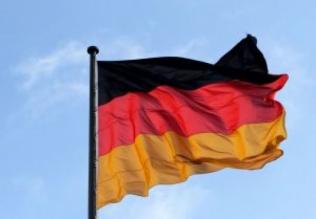Unemployment among Greek youths is almost at 50 percent - economically robust Germany seems like a good option
BRUSSELS - The two-year long eurozone crisis has taken its toll on political relations between debtor Athens and creditor Berlin but Greeks are voting with their feet - the number of Greeks learning German has shot up over the last year.
The German language Institute in Athens has seen the number of Greeks signing on for courses rise by 23 percent compared to this time last year - or 450 students compared to around 370 for the same semester in 2011.
"We do connect it to the crisis,"Ulrike Drissner, deputy head of the Goethe Institute in Athens, tells this website adding: "They are desperately trying to find better opportunities in the labour market whether it be in Greece or abroad. It is does not actually necessarily mean that people want to leave immediately but many play with that thought."
"It's not just the Goethe Institute, there are many private schools in Athens as well who have a rise in numbers," she notes.
The jump in statistics comes as economic data show that the German economy continues to be robust, with a 3 percent growth in 2011 and an employment rate of 6.8 percent, its lowest for over 20 years.
By contrast, Greece's economy will have shrunk by 17 percent between 2009 and the end of this year while unemployment is at around 18 percent, a figure that rises to 48 percent when it comes to the country's youth.
"The people who come to us are getting younger," says Drissner. "Our main playing field used to be younger to middle-aged people, from the age of 30 onwards. Now we see it is more and more in the mid-20s - students who are just finished university and are trying to get onto the labour market. They assume they will have better chances with more languages."
At first sight the figures appear counterintuitive. Germany and Greece are the central players in the eurozone debt drama that has seen Athens have to ask for two bailouts, funded to the greatest extent by Berlin.
Germany and others have demanded a shopping list of austerity measures in return for the bailouts. Popular media on both sides have added fuel to the flames. Some Greek newspapers have depicted German Chancellor Angela Merkel in a Nazi uniform while German newspapers suggest Greeks are lazy.
But Drissner says the apparent xenophobic sentiment is mainly media-driven.
"Most of what is happening is happening in the media. Of course you walk along media stands and you see Angela Merkel in an SS uniform and maybe even decorated with the famous mustache.
There is definitely a sensation that the Germans don't like the Greeks and that they don't want to support them but personally I haven't had any bad encounters. I openly read my German newspaper and magasine on public transport."
She also suggests that Greeks simply want to get on with improving their lot rather than discussing who is to blame for the economic crisis. "It is hard for us to find now a class that wants to let a journalist in," she says, referring to the number of media requests for footage of German-learning Greeks. "They don't want to talk about this."
Janis Emmanouilidis from the European Policy Centre thinktank in Brussels backs up Drissner's analysis.
"If you talk to young Greeks. They are longing for a job. They want to show that they can be productive. But they are not able to because of the high level of unemployment and five years of recession," he says.
"Despite the anger that you can see in Greece, a lot of young Greeks, when they leave their country, opt for Germany. They think this is a country that has potential."
euobserver.com



